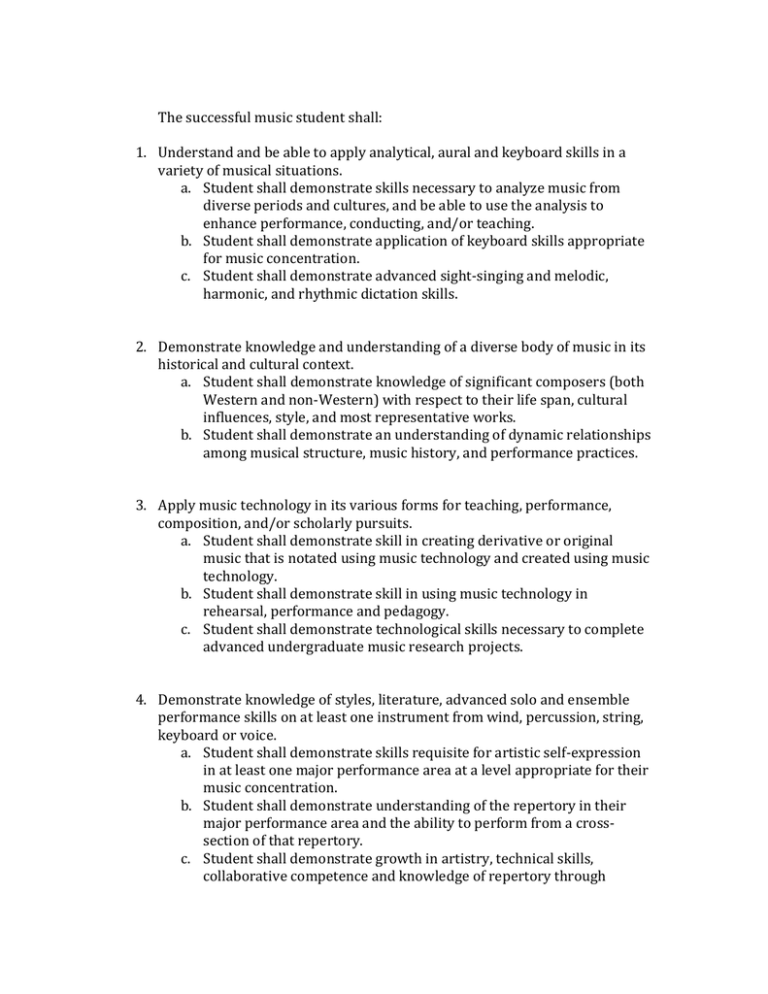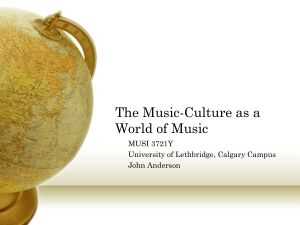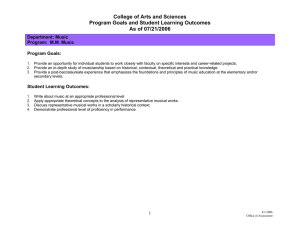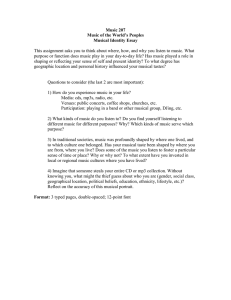The successful music student shall:
advertisement

The successful music student shall: 1. Understand and be able to apply analytical, aural and keyboard skills in a variety of musical situations. a. Student shall demonstrate skills necessary to analyze music from diverse periods and cultures, and be able to use the analysis to enhance performance, conducting, and/or teaching. b. Student shall demonstrate application of keyboard skills appropriate for music concentration. c. Student shall demonstrate advanced sight-singing and melodic, harmonic, and rhythmic dictation skills. 2. Demonstrate knowledge and understanding of a diverse body of music in its historical and cultural context. a. Student shall demonstrate knowledge of significant composers (both Western and non-Western) with respect to their life span, cultural influences, style, and most representative works. b. Student shall demonstrate an understanding of dynamic relationships among musical structure, music history, and performance practices. 3. Apply music technology in its various forms for teaching, performance, composition, and/or scholarly pursuits. a. Student shall demonstrate skill in creating derivative or original music that is notated using music technology and created using music technology. b. Student shall demonstrate skill in using music technology in rehearsal, performance and pedagogy. c. Student shall demonstrate technological skills necessary to complete advanced undergraduate music research projects. 4. Demonstrate knowledge of styles, literature, advanced solo and ensemble performance skills on at least one instrument from wind, percussion, string, keyboard or voice. a. Student shall demonstrate skills requisite for artistic self-expression in at least one major performance area at a level appropriate for their music concentration. b. Student shall demonstrate understanding of the repertory in their major performance area and the ability to perform from a crosssection of that repertory. c. Student shall demonstrate growth in artistry, technical skills, collaborative competence and knowledge of repertory through regular ensemble experiences. Ensembles should be varied both in size and nature. 5. Demonstrate ability to act independently at a high level as a musical creator, scholar, performer, and/or teacher. a. Student shall demonstrate skills and dispositions required to be an independent and collaborative musician in the area of concentration. b. Student shall produce at least one high quality composition, performance, teaching unit or other musical artifact with a minimum of guidance from faculty. It should demonstrate synthesis of collegiate music study. 6. Demonstrate ability to communicate effectively -- musically, verbally and in writing. a. Student shall demonstrate ability to communicate musically with a variety of audiences. b. Student shall demonstrate verbal ability required for communication with a variety of groups, including audiences, students, and musicians. c. Student shall research and write scholarly papers at a level appropriate for upper division students.



